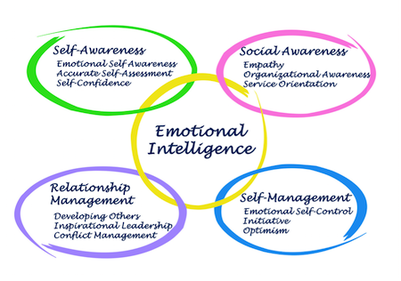Effective communication goes beyond words—it involves understanding emotions, empathizing with others, and building meaningful connections. Emotional intelligence (EI) plays a crucial role in enhancing communication skills and fostering positive relationships. In this comprehensive guide, we delve into the importance of emotional intelligence in communication, strategies to develop EI, and practical tips for applying it in various contexts.
Understanding Emotional Intelligence in Communication
Emotional intelligence refers to the ability to recognize, understand, manage, and express emotions effectively. In communication, EI enables individuals to navigate interpersonal dynamics, handle conflicts constructively, and cultivate empathy and rapport with others.
Why Emotional Intelligence Matters
- Enhanced Understanding: EI helps individuals interpret nonverbal cues, such as facial expressions and body language, to grasp underlying emotions and intentions. This leads to clearer communication and reduces misunderstandings.
- Building Trust and Rapport: High EI fosters trust and rapport by demonstrating empathy, active listening, and sensitivity to others’ emotions. It creates a supportive environment where individuals feel valued and understood.
- Conflict Resolution: EI equips individuals with the skills to manage conflicts diplomatically and find mutually agreeable solutions. By recognizing and addressing emotions constructively, communicators can de-escalate tension and promote collaboration.
Developing Emotional Intelligence in Communication
Enhancing emotional intelligence is a continuous process that involves self-awareness, self-regulation, empathy, and social skills. Here are strategies to develop EI and improve communication effectiveness:

1. Cultivate Self-Awareness
Start by becoming aware of your own emotions, triggers, and communication patterns. Reflect on how your emotions influence your thoughts and behaviors during interactions. Practice mindfulness and self-reflection to enhance self-awareness.
2. Practice Active Listening
Active listening is essential for EI in communication. Focus on understanding the speaker’s emotions, concerns, and underlying messages. Use verbal and nonverbal cues to show attentiveness and empathy, such as nodding, paraphrasing, and maintaining eye contact.
3. Manage Emotions Effectively
Develop strategies to manage your emotions during challenging situations. Practice techniques such as deep breathing, positive self-talk, and mindfulness to stay calm and composed. Emotionally intelligent communicators can regulate their emotions to maintain constructive dialogue.
Applying Emotional Intelligence in Different Contexts
Emotional intelligence enhances communication across various contexts, from personal relationships to professional environments. Here’s how EI can be applied effectively:
In Leadership
Effective leaders use EI to inspire, motivate, and engage their teams. They demonstrate empathy, listen actively to employee concerns, and foster a supportive work culture based on trust and open communication.
In Customer Service
EI is crucial in customer service roles to understand and address customer emotions and needs effectively. Customer service representatives who demonstrate empathy and emotional sensitivity can enhance customer satisfaction and loyalty.
In Team Collaboration
EI promotes collaboration and teamwork by fostering understanding, respect, and cooperation among team members. Emotionally intelligent individuals contribute positively to group dynamics, resolve conflicts amicably, and achieve shared goals.
Benefits of Emotional Intelligence in Communication
Emotional intelligence enhances communication skills and yields numerous benefits:
- Improved Relationships: Strong EI fosters healthier, more fulfilling relationships based on empathy and mutual respect.
- Enhanced Conflict Resolution: EI enables individuals to navigate conflicts constructively and find win-win solutions.
- Effective Leadership: Leaders with high EI inspire trust, motivate others, and drive organizational success.
- Personal Growth: Developing EI leads to personal growth, increased self-awareness, and enhanced emotional resilience.
Conclusion
Emotional intelligence is a cornerstone of effective communication, enabling individuals to connect authentically, resolve conflicts diplomatically, and foster positive relationships. By cultivating EI through self-awareness, active listening, and empathetic communication, you can enhance your communication skills and achieve greater success in both personal and professional domains. Embrace emotional intelligence as a powerful tool for building connections, understanding others, and navigating the complexities of human interaction with empathy and effectiveness.
